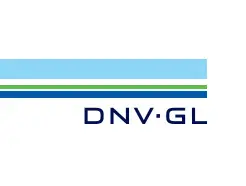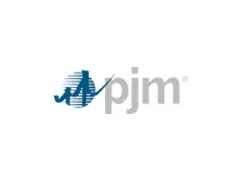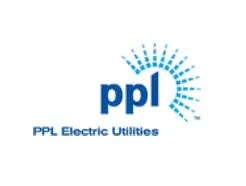Industries
Information Security in the Energy Industry
The U.S. energy infrastructure, a cornerstone of the nation’s Critical Infrastructure sectors, is essential to the 21st-century economy, powering industries, households and critical services. This infrastructure is composed of three interconnected segments: electricity, oil and natural gas. Any disruption to these vital systems poses serious risks to public safety, national security and economic stability.
With over 80% of the nation’s energy assets under private ownership, the sector carries the responsibility of maintaining a reliable energy supply for transportation, businesses and homes. This heavy reliance highlights the critical need for advanced cybersecurity strategies to counter increasingly sophisticated threats.
At CBIZ Pivot Point Security, we specialize in helping the energy sector reduce the risk of a cyber incident. By providing comprehensive security solutions, we help ensure resilience, safeguard critical systems and support the uninterrupted flow of energy that fuels the nation’s growth and prosperity.
Since 2001, we have successfully streamlined the certification and compliance process for many organizations in the energy sector, ranging from Fortune 100 companies to startups. We help companies navigate the complexities of cybersecurity while making them “provably secure.”
The 3 Primary Energy Segments We Serve
Prioritizing cyber security for electric utilities, oil and natural gas is vital in ensuring national security, public safety and economic stability. At CBIZ Pivot Point Security, we offer a full range of services to ensure network and system resilience. Our solutions cater to organizations in:
- Electric utilities
- Oil
- Natural gas
Information Security Challenges in the Energy Sector
Discover the information security challenges the energy sector faces in maintaining secure cyber environments.
- Rapidly deploying evolving technology in accordance with overlapping and ambiguous standards, such as NIST, AMI-SEC, NERC and ISO 27002 Guidance.
- Managing risk associated with the need to leverage third-party services to achieve business goals within current time and resource constraints.
- Ensuring that once isolated elements of utility infrastructure, such as SCADA/DNP3, DMS and the devices it supports, are secured in a manner consistent with their vital importance.
- Supporting key deployed technologies with the policies, standards, procedures and technologies necessary to manage and monitor them.
- Converging the traditionally divergent information technology (IT) and operational technology (OT) systems to streamline accessibility and collaboration.
- Keeping up with increasing regulatory pressure to maintain security compliance amidst rising cyber threats in the industry.
- Observing real-time operational requirements to ensure continuity and promote proactive threat detection and fast incident response.
- Managing the logistics and cost implications of modernizing or replacing legacy systems and infrastructure.
- Keeping abreast of the increased exposure to advanced persistent threats (APTs) and other cyberattacks as you integrate more technologies to boost efficiency and minimize costs.
- Continuously protecting energy facilities and infrastructure situated in multiple geographic areas from physical security breaches.
- Managing the risk arising from increased reliance on software to generate and distribute power.
How to Improve Energy Security: Our Solutions
Our expert team will assess your OT and IT environments to identify vulnerabilities and run penetration tests at the application, network, device, database and physical levels to ensure you’re achieving net security objectives. We’ll also:
- Verify compliance with industry regulations like NERC CIP and TSA Pipeline Security Guidelines.
- Perform a gap analysis to determine if your cyber environment is consistent with NIST, CSF and ISO 27001 global standards.
To safeguard critical infrastructure, we assess:
- Network segmentation to separate vital systems and avoid lateral movement.
- Intrusion detection systems (IDS) and real-time threat detection tools.
- SCADA, DCS, PLCs and remote monitoring solutions against cyber threats.
- Secure remote access solutions for field operations.
We streamline your cybersecurity preparedness by:
- Developing threat intelligence programs tailored to industry-specific threats, such as ransomware, nation-state attacks and supply chain vulnerabilities.
- Establishing incident response plans and conducting tabletop exercises for cyberattack scenarios.
- Offering 24/7 security operations center 2 (SOC 2) services for monitoring and rapid response.
Our typical engagements in this step include:
- Evaluating cloud-based energy management platforms with strong identity and access controls.
- Reviewing data encryption, backup strategies and ransomware protection.
- Ensuring secure integration of IoT devices and smart grids.
Our holistic approach to information security includes:
- Conducting cybersecurity awareness training for employees and third-party contractors.
- Auditing role-based access control (RBAC) and privileged access management (PAM).
We help you manage third-party and supply chain risk by:
- Assessing third-party vendors, including equipment suppliers and software providers.
- Establishing vendor risk management policies and contract security requirements.
Our experts develop resilience strategies to ensure operations continue during cyber incidents. We also:
- Conduct penetration testing and red team exercises to simulate real-world attacks.
- Ensure secure backup and recovery mechanisms are in place.
Why Choose CBIZ Pivot Point Security?
Continually evolving technology, business requirements, regulations and threats make “being secure” and “proving you’re compliant” increasingly complex for the energy industry. The only logical response is to simplify.
We make it easier to prove that you are secure and compliant by:
- Focusing on the core group of security assessment services you need.
- Taking the time to understand your business and then optimizing our approach for your unique situation.
- Delivering reports and guidance that are easily understood and acted on by both management and technical personnel.
- Basing your assessment and recommendations on trusted, “open” — non-proprietary, non-vendor specific — guidance to simplify the process of operating and maintaining your information security management system.
FAQs Related to Information Security in the Energy Industry
Why Is Maintaining Information Security Crucial for the Energy Sector?
Information security is important because it helps ensure a continuous power supply, which is critical for the economy, national security and everyday life. Cybersecurity also safeguards sensitive operational and customer data.
What Are the Threats to Energy Security?
According to the U.S. Department of Energy (DOE), the energy sector is vulnerable to social engineering, ransomware, denial of service, malware, trojans, viruses and worms, and penetration attacks. The department identifies different types of threat actors, such as insiders, hacktivists and terrorist organizations.
Are There Specific Regulations Governing Information Security in the Energy Sector?
Yes. ISO 27001 is a global standard that helps energy organizations reinforce their cybersecurity practices to protect vital infrastructure and sensitive data. In the U.S., ISO 27019 provides more specific guidance for the energy utility industry, NERC CIP standards provide rules for electric utility organizations to securely operate bulk electric systems (BES). The Transportation Security Administration (TSA) offers cybersecurity planning and implementation guidelines for oil and gas companies.
In What Ways Do Cyberattacks Threaten the Reliability of Energy Supply?
Cyberattacks can manipulate data, disable remote infrastructure control and compromise sensitive data to disrupt power production, transmission and distribution. These actions can cause widespread outages, result in financial losses, and pose risks to national security and public safety.
Why Should You Be Concerned About Attacks on Energy Infrastructure?
Disrupted power distribution can have far-reaching implications for the public by affecting water access, sewage management, heating systems, economic activities, critical health equipment and education.
Contact Us for Simplified Compliance and Security
CBIZ Pivot Point Security is your trusted partner in simplifying cybersecurity and compliance processes. With a combined experience of 408 years, our team is exceptionally capable of making your business “provably secure.” We maximize your potential to safeguard energy infrastructure and systems, giving you peace of mind and empowering your team to operate with confidence.
Contact us online for reliable solutions and guaranteed service satisfaction.










